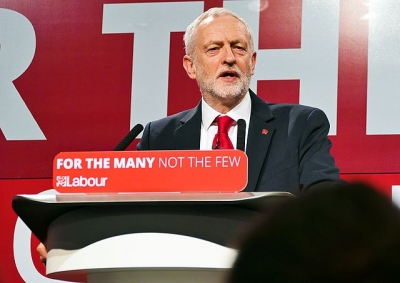After two years of simmering resentment at best and outright hostility at worst, this year’s Labour Party Conference in Brighton may well emerge as the one where Labour finally got its act together.
Two years ago in Brighton we saw the glee of the left and the reeling of the electorally defeated moderates, after Jeremy Corbyn had just emerged victorious from his first leadership contest. Last year, after he had won a second time, drizzly Liverpool was pervaded by a general sense of gloom, reflected in low attendance and a clear division between those attending the official Conference and its Momentum-sponsored counterpart. By contrast, the atmosphere in sunny Brighton this year could for the first time in years be described as upbeat.
Attendance felt high, especially in the woefully overheated fringe rooms, with spectators standing at the back and long queues for The World Transformed, the Momentum-organised series of events this year complementing the official Conference.
Indeed, the key motifs running through Conference were the sense of pride in Labour’s electoral achievements earlier this year, the puns on “momentum”, and the chants of Oh, Jeremy Corbyn. Certain late night events frequented by moderates still saw outbreaks of dancing to “Things can only get better” — but played for tradition’s sake, rather than mournfully. Prominent moderates could be overheard declaring that “We are all Momentum now.” A new sense of energy was in the air.
Enthusiasm for Corbyn himself was also widespread. The leader and his Shadow Cabinet, which has undergone much flux in the past two years, were visibly comfortable at the helm of the party, growing into their respective briefs and identities – peaking when Conference Hall delivered a birthday serenade for Diane Abbott at Corbyn’s initiation. And for the first time also, Corbyn seemed to have gained the upper hand in his fraught relations with the press, demonstrating his ease by making several jokes at the media’s expense.
Sadiq Khan’s speech, hard-fought for according to the press, was remarkable in its support for the new order. While Khan remains a celebrity in his own right, greeted by thunderous applause and extensive queues every time he makes an appearance, he has recognised the value of playing along with his party’s new centre of gravity for the moment.
Corbyn’s speech was a concluding tour de force, both in its political positioning and its delivery. Blows to the Conservatives on Brexit, the election campaign, and internal schisms were well-considered and well-delivered, making the most of the Government’s state of disarray. The new policies announced, especially on housing, were positively received amongst members — particularly in the context of the Grenfell tragedy, which gave activists a sober rallying point, uniting them in the steely determination to tackle the social inequalities and regulatory failings underlying the fire.
For the first time in a long time, too, policy rather than internal politicking was given an airing at drinks receptions and late night parties, with Uber’s troubles yielding inspired debate on all sides. However, while corporate attendance was up this year, business was left disappointed by Corbyn’s speech — which, as City A.M. has observed, was just under 6,000 words long yet only mentioned business three times.
With policies such as rent controls, tenant ballots on developers’ regeneration schemes, and the ever-popular guarantee of EU citizens’ rights gaining him favour among wide sections of the electorate, however, Corbyn can afford to be bullish. He has a strong claim to being more people-powered than any other politician currently on the scene.
While recent political events would guard even the most daring of commentators, Labour may just be in the best state it has seen for years.




